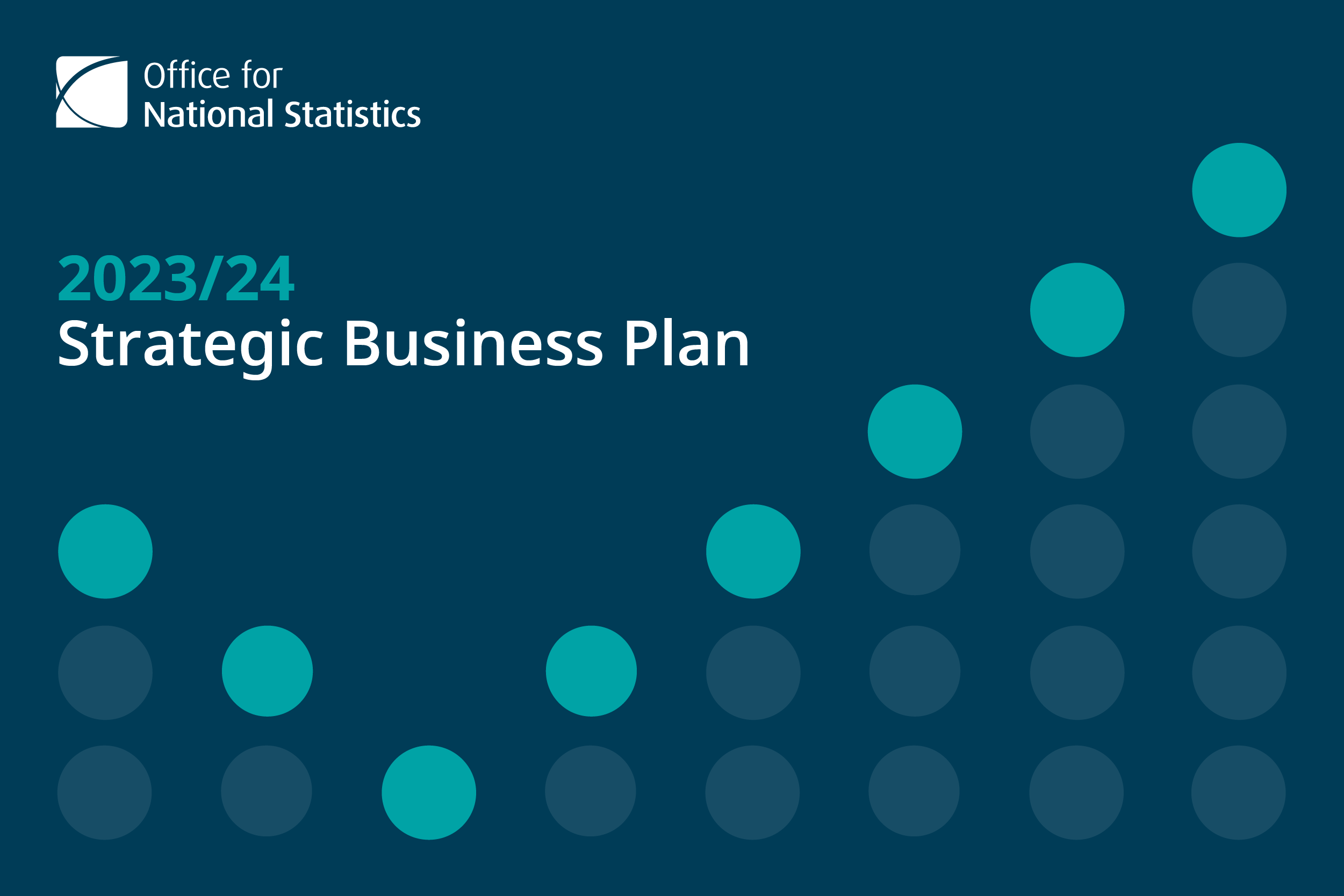National Statistician's Foreword
The UK Statistics Authority (UKSA) strategy, Statistics for the Public Good, sets out the need for high quality statistics data to inform the United Kingdom (UK), improve lives and build for the future. The strategy sets out how the statistical and analytical system can step up to inform the country, providing and communicating evidence to inform decisions, while reducing the potential for misrepresentation.
As the challenges of the past three years have shown – from the pandemic to war in Ukraine and providing insight into the rising cost of living – the Office for National Statistics (ONS) collaborating with the Government Statistical Service (GSS) continues to play a leading role in informing all users of official statistics on issues that matter to them. It benefits from the statutory independence of the UK Statistics Authority, supported by the Code of Practice for Statistics, the GSS, key ethical principles, and its ability to convene experts and analytical resources.
The ONS produces key statistics which provide insight into the health, society, and economy of our nation. These are required to evolve quicker than ever, using new data sources and methods which are more frequent and granular to show how the UK is changing and developing. It is responsible for key aspects of the Digital Economy Act, which provides access to data in support of its remit from across the UK. The ONS also has an important role in ensuring that the country’s evidence is inclusive and reflective of the full characteristics of the UK.
In the first three years of the strategy, we have delivered a world-leading COVID-19 Infection survey, provided inclusive and trusted insight into the centre of government on key policy topics, delivered a successful census in 2021 and high-quality outputs, continued to transform our economic and social statistics, and played a leading role in data sharing across government with the launch of the Integrated Data Service. In addition, we have embedded ONS expertise into Local Authority offices creating a supportive service across the United Kingdom.
As we continue to deliver against the strategy in its fourth year, we will focus on key priorities for this year to achieve our eight multi-year strategic objectives which are explained in more detail in section 5 and at Annex B:
- Continue to deliver high-quality statistics and insight on key topics
- Timely, granular, and frequent statistics to support management of the economy and society. Including Gross Domestic Product (GDP), public sector borrowing, inflation, crime, migration, population, household finances, and health.
- Delivery of census outputs and transformation of population statistics
- Continue to deliver engaging, high-quality outputs from the 2021 Census to users to inform policy and provide insight. Deliver a transformed system of population and migration statistics, leading to a recommendation to Parliament by the end of the financial year.
- Continue to deliver significant economic statistics transformation
- Implement radical new approaches to prices, labour market statistics, public sector finances and statistics on economic growth and development.
- Launch the full public beta of the Integrated Data Service Programme
- Deliver radical advances in the availability and usage of data through the Integrated Data Service (IDS) including the development of data assets in support of levelling-up, net-zero, public health, and cost of living.
- Develop flexible analytical resource and cross-government relationships
- Continue to develop productive relationships across government, including with the Joint Data and Analysis Centre in Cabinet Office, and use flexible resource to provide insight on core topics of public interest.
- Continue work towards crime survey transformation
- Transform the Crime Survey in partnership with the Home Office, to provide more granular insight on crime and revised approaches to violence against women and girls (VAWG), and child abuse.
- Provision of UK-wide, comparable, coherent, and more local data
- In support of the Union and levelling-up agendas, work in partnership with the Department for Levelling-Up, Housing and Communities to provide more granular data on key topics through our local ONS service and improve data sharing via implementation of the IDS across the UK including the devolved administrations.
- Innovate through research that increases quality and cost-effectiveness
- Further expand the use of research to improve ONS’ outputs, methods, and analysis, including through ONS’ recently acquired Public Sector Research Establishment status and partnerships with centres of excellence in innovation and research. Use research to explore how the latest developments in fields such as data science, which includes artificial intelligence, can raise quality and produce new insights.
- Continue to build organisational sustainability and financial efficiency
- Continue to build the resilience of the organisation through improving our technology estate, security approach and flexible working environment. This includes our new office presence in Manchester and Darlington. At the enterprise level, focus on delivering efficiency savings across the organisation with a focus on automation, legacy reduction, and moving more surveys online.
In a challenging external context, this drive to build resource sustainability and financial efficiency provides an overarching framework for the organisation next year – with a particular focus on automation and improving the efficiency of government’s usage of data.
Our achievements, and our ambition for the coming year, can only be realised through the expertise, skills and enthusiasm of our colleagues across the organisation who are all focused on delivering for our nation. Our commitment is to continue to build both on our award-winning hybrid working environment and the careers of each and every individual to ensure we can achieve this plan.
This Strategic Business Plan sets out how the ONS will lead the response to these challenges in line with the four strategic drivers (also known as ‘pillars’) of Radical, Ambitious, Inclusive and Sustainable set out in the UKSA strategy.
Professor Sir Ian Diamond
National Statistician
UK Statistics Authority

